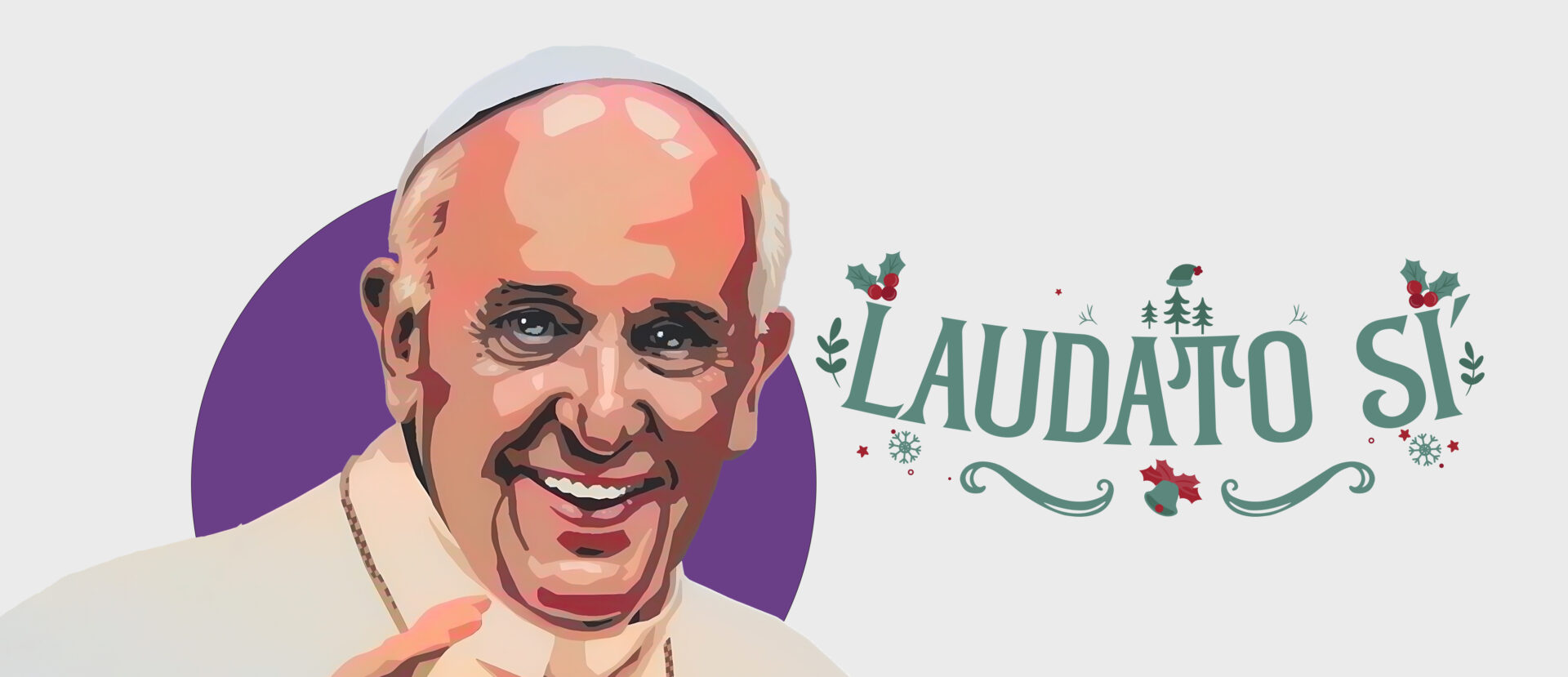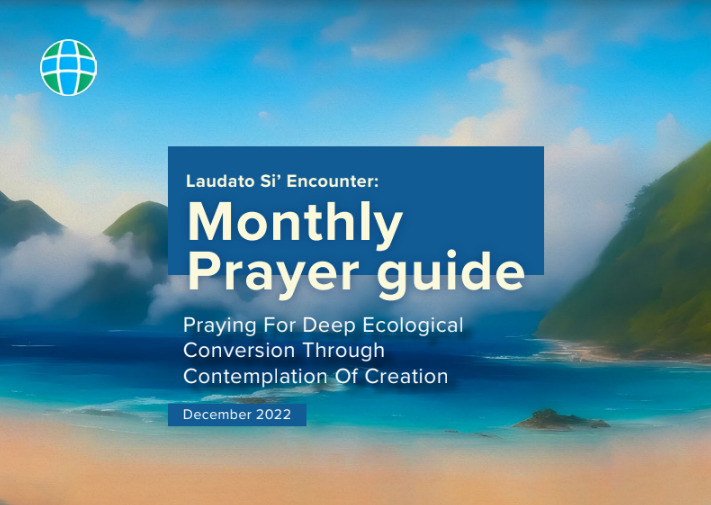
Monthly intention
How people in Fiji are facing climate change
Hearing Creation’s Cry
Hearing Creation’s Song
Ecological conversion story
Inspiring Saint
Advent with Pope Francis and Laudato Si’: Preparing for the Good News
If you prefer, you can download this resource in PDF format by clicking here.
Monthly intention
December 2022
Praying for deep ecological conversion through contemplation of creation
“We understand better the importance and meaning of each creature if we contemplate it within the entirety of God’s plan” (LS 86).
Prayer for the islands
Creator God of the Universe God of the living land and seas and all they carry Through the power of Your Word, You created the islands With Your outpouring love, You have given them to us as a gift To become a source of life, our identity and sustenance And You commanded us to become good stewards of the land and the seas of the islands.
Ever loving and compassionate and merciful God Look not on our shortcomings and failures before You We have abused the gifts You have given us Both the land and the seas are bleeding and crying We have become irresponsible stewards of the islands As our greed, selfish consumerist culture subdues our love and care for the land and oceans Turn Your ear, O merciful Lord, and hear the cries of the islands Strengthen our resolve to turn away from our sinful ways We have destroyed the land and oceans Through our corrupt agricultural practices, pollution, mining and deforestation in the islands.
Renew our commitment to become better stewards of our homelands floating on vast oceans. Our hearts lament, crying out for Your healing hands, O Lord. God of life, heal Your wounded earth May Your Spirit empower us to choose the road less travelled The road that leads us to life and sustainable living Equitable living with others, especially the poorest among us And maintaining the balance with the ecosystems surrounding us.
Continuously guide us in the paths of righteousness and justice So that we may enjoy again Your love and grace in the land and the seas. This we ask in the name of the One who came, that we may have life in its fullness, our Lord Jesus Christ, Amen.
By Paulo Baleinakorodawa, member of the LSM Global Membership Council and LSM Oceania Chapter, Fiji Islands.
This is a prayer from the Laudato Si’ Movement Prayer Book available for downloading here
Go to top
How people in Fiji are facing climate change
Inspiring in the scripture Mt 3:1-12
By Br. Chris Poppelwell, Marist Brothers, Fiji
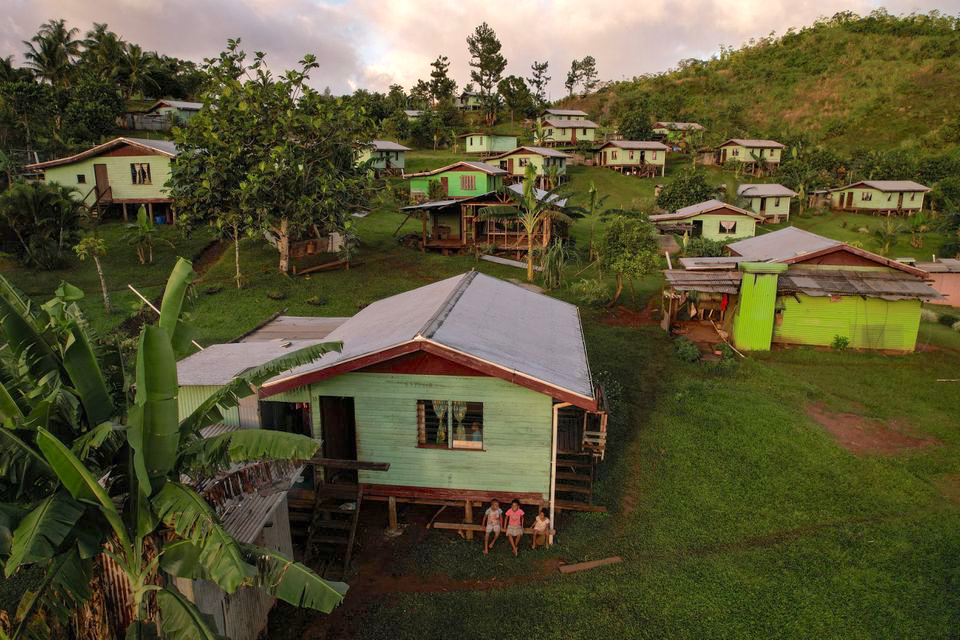
Relocated Village, Vunidogoloa, Fiji. July 2022 (Reuters, Loren Elliott)
In this season of Advent, we are preparing for the coming of the Lord. In Matthew 3, John the Baptist was also preparing people for the coming of Jesus, the Messiah. He calls for repentance, a word that means turning back, in this case to God. The people of the day, especially the leaders, are content to say they are children of Abraham without carrying out what Abraham modeled for them. Today we are faced with a very similar situation, indeed a critical one, because of the harm done to the environment by human activity. Yet what is happening with our leaders, our people? The Western world claims a Judeo-Christian heritage, yet is failing to carry out what Jesus demanded and modeled.
In Laudato Si’, Pope Francis gives us numerous examples of what is needed for our day, but the international meetings, even those on the environmental crisis, have other priorities than the environment – finding excuses to blame others, denying there is a crisis at all, making vague promises that can be re-interpreted later, offering short-term proposals that are likely to lead to further long-term problems, using words that will impress their own electorates rather than promote real solutions, avoiding reparations for the misdeeds of earlier generations, and the like.
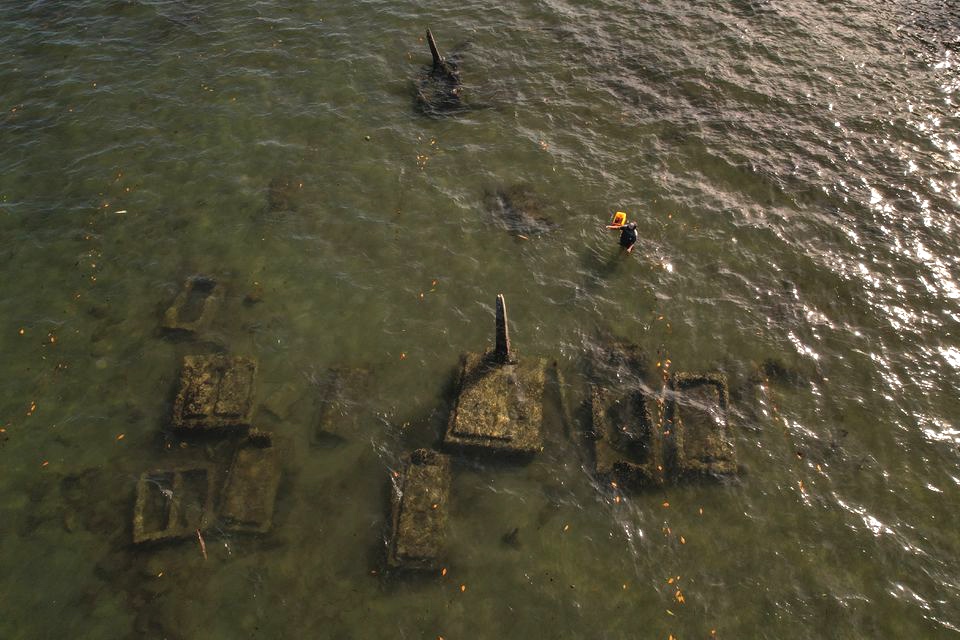
Man fishing in abandoned cemetery, Togoru Village, Fiji (Reuters, Loren Elliott)
Here in Oceania, people are faced with the consequences of climate change that they themselves have not caused. Sea levels are rising, coral reefs are bleaching, fish are migrating away from warming oceans, villages are being forced to move to higher ground because of sea-level rise, storm damage and wells becoming salt-contaminated, storms are becoming more violent, and rainfall less reliable. For the wealthy, this is no more than a hiccup, but for the poorest, it is life-threatening.
The Pope’s call is to recognise that we are part of nature, and whatever harms the environment is damaging ourselves – a good summary is to heed “the cry of the earth and the cry of the poor.” As children of God, we are called to “care for” the earth, but much of our exploitation of the earth has harmed it. Mining, fishing, fossil fuels, waste and pollution from manufacturing can all be made sustainable, but it needs the will of leaders, supported by their people, to reduce, repair, re-purpose, and recycle to make it happen.
Go to top
Hearing Creation’s Cry
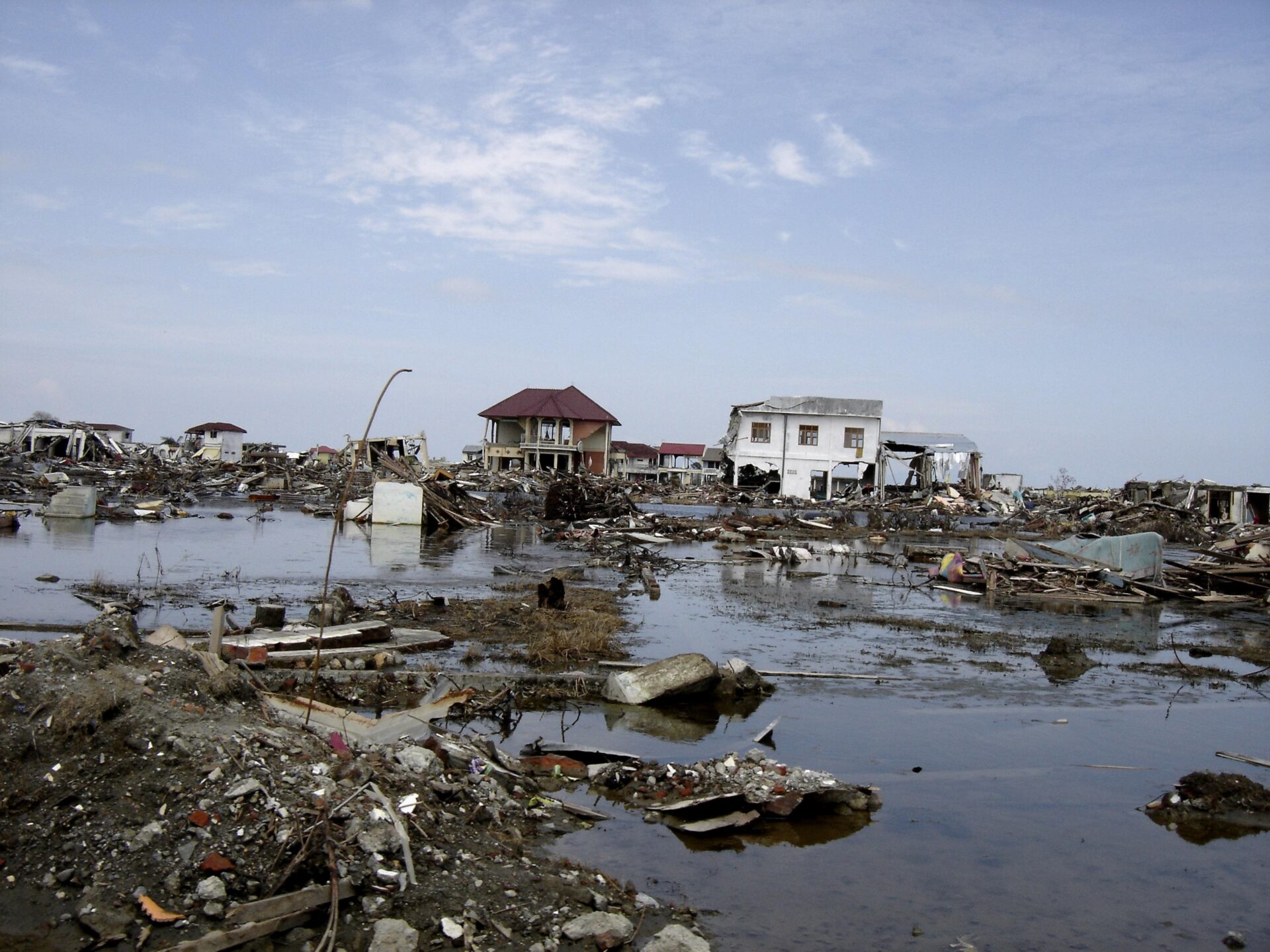
The island state of Kiribati, responsible for just 0.6% of world greenhouse gas emissions, already lost 2 of its uninhabited islands, Abanuea and Tebua Tarawa due to rising sea levels. (Source: Iberdrola.com)
Go to top
Hearing Creation’s Song
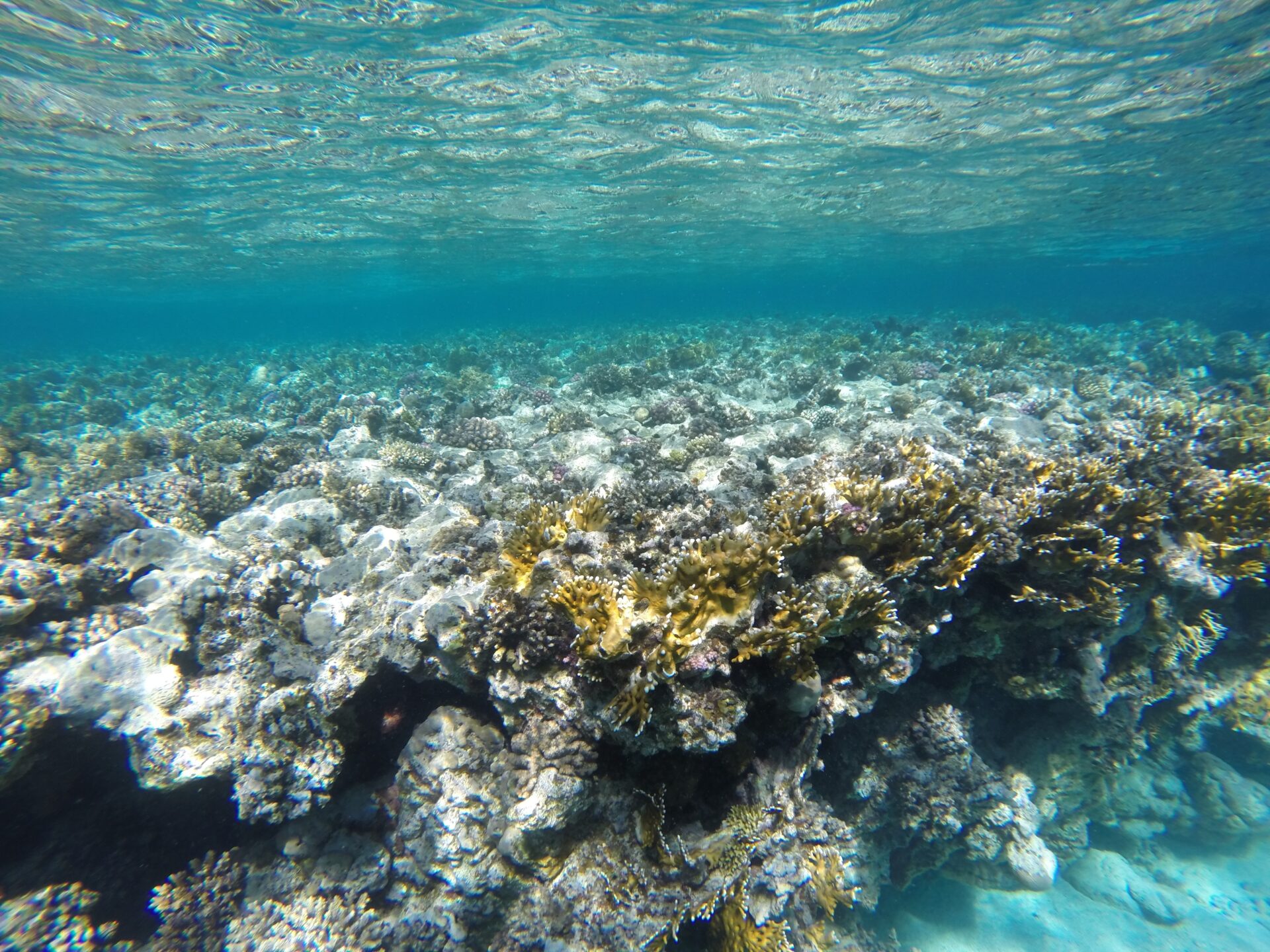
Papua New Guinea is believed to contain approximately 10% of the globe’s biodiversity with over 13,000 endemic plant species.(Source: news.mongabay.com)
Go to top
Ecological conversion story
Watching the Letter in Australia, praying for our neighbors in Oceania
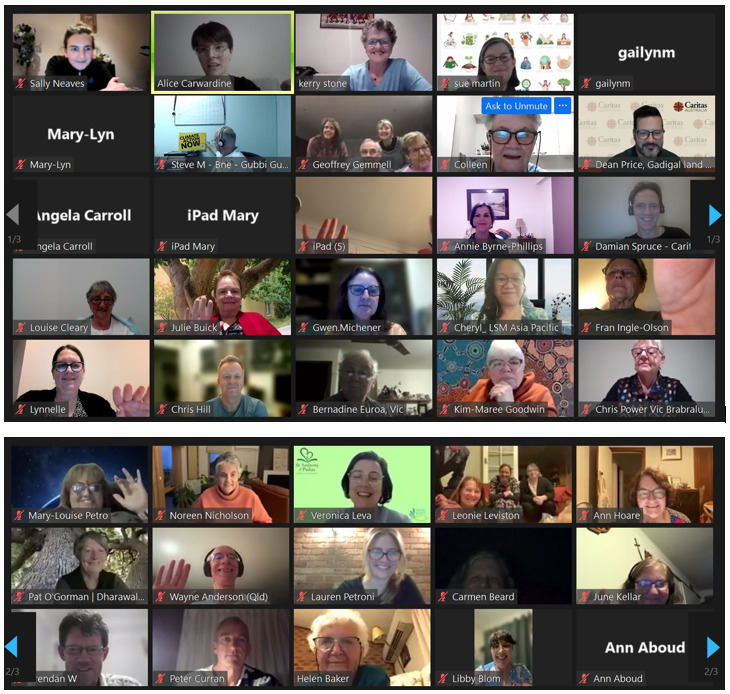
Participants on the online screening of The Letter in Australia
By Alice Carwardine, Catholic Earthcare Australia
On October 24th, Catholic Earthcare Australia, in collaboration with its parent organization Caritas Australia, the Institute of the Sisters of Mercy of Australia and Papua New Guinea, and the Jesuit organization ‘Being with God in Nature’ hosted its first screening of ‘The Letter’ online to over 150 participants. The participants gathered on their tablets, phones, and computer screens from all over Australia to enjoy the film and to learn about how we can respond to the call of Pope Francis.
Chief Dadá’s story struck a chord with many of our participants due to the challenges that our own First Nations people face here in Australia. Fortunately, Australian organizations and workplaces have been working hard over the past few years to develop Reconciliation Action Plans, which seek to improve dialogue with our First Nation’s peoples. The Letter highlighted how vital this dialogue is though Australia still has a long way to go.
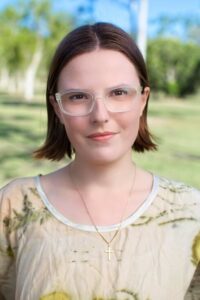 Catholic Earthcare has also held a series of online screenings the past few months around biodiversity and the importance of caring for our native plants and animals. Greg and Robin’s story reminded participants of one of the greatest biodiversity challenges within Australia – the Great Barrier Reef, which is under severe threat.
Catholic Earthcare has also held a series of online screenings the past few months around biodiversity and the importance of caring for our native plants and animals. Greg and Robin’s story reminded participants of one of the greatest biodiversity challenges within Australia – the Great Barrier Reef, which is under severe threat.
But it was Arouna Kande’s story that reminded us of how awful Australia’s sins have been on the climate front. Rising sea levels are an issue that heavily impacts our closest neighbors – the Pacific Island Nations, a major topic of discussion in our subsequent forum during the event.
After participants watched the film on YouTube, there was a short panel discussion focused around the 7 Laudato Si’ goals. Inspired by the key themes around dialogue within the film, the forum highlighted some of these key issues within the Australia and Oceania region. Representatives on the forum, from Caritas and Catholic Earthcare, discussed the recent research into climate debt in Oceania.
On the 6th of October Caritas released its report ‘Twin Clouds on the Horizon: Climate Change and Debt in the Pacific.’ The report describes compounding issues within the Pacific – the impacts of climate change including rising sea levels and increased natural disasters, in conjunction with the increasing climate debt problem within the Pacific. The Pacific Island nations are caught in a vicious cycle of debt when it comes to building climate resilience. The billions of dollars provided over the last 5 years has been through multilateral channels such as the Green Climate Fund as well as funding provided by bilateral contributors like Australia.
Unfortunately, most of the funding has been predominantly put towards mitigation with less going towards adaptation. Furthermore, the funding doesn’t appear to be making its way directly to the small communities at the forefront of the disasters. As a result, the communities have only been able to rebuild after natural disasters and build infrastructure that helps prevent damage as opposed to funding projects that seek new ways of living and being in a changing environment. Rebuilding and mitigation are about surviving, not thriving. In some cases where money is provided as loans, communities have not been able to increase their economy because they are paying back their loan debts.
But the report provides several recommendations around how these two compounding issues can be resolved. First, funding should be delivered directly to local communities. Those contributing to funding should be aiming to meet the target of $100 billion US dollars per year. And, second, all future money should be given in the form of ‘grants’ rather than ‘loans.’ This would allow the local communities to build, without the stress of debt, and be able to adapt to the changing climate. In a way, the bigger polluting countries would literally be paying their dues.
For many of us, the discussion around ecological economics, paired with the powerful messages around dialogue within the film are a real wake up call for the types of sacrifices we need to make for the sake of our neighbors and for ourselves. These are incredibly necessary sacrifices so that those barely surviving can start to thrive again. Australia certainly has a long way to go to ‘pay our dues.’
We also have a long way to go to get to an integral ecology. We need to acknowledge the voices of our First Nations peoples. We need to have a serious discussion about how we can support those forced to migrate from the Pacific, especially those choosing to settle in Australia. We need to have a serious discussion about energy and how we can reduce emissions in line with the Paris Agreement. And we need to discuss how to better respond and adapt to natural disasters on our own doorstep.
Catholic Earthcare is excited to support the Australian Catholic schools, parishes, and families to move towards this integral ecology. We look forward to sharing more screenings and continuing this important dialogue around the 7 Laudato Si’ goals.
Go to top
Saint John of the Cross
Inspiring Saiembernt
Feast Day: Dec 14
Stop and Smell the Roses
By Patrick Laorden, LSM Theological Consultant
 Our lifestyle today is characterized by constantly being on the go. If a moment catches our attention, we have the convenience of capturing it on our phone so that we can carry it with us and think about it later on. Such convenience, at times, can take us away from being present in the moment. For instance, we may be at a concert and we are busy recording the performer on our phones instead of being present to their performance.
Our lifestyle today is characterized by constantly being on the go. If a moment catches our attention, we have the convenience of capturing it on our phone so that we can carry it with us and think about it later on. Such convenience, at times, can take us away from being present in the moment. For instance, we may be at a concert and we are busy recording the performer on our phones instead of being present to their performance.
Growing up, I’ve often been encouraged to “stop and smell the roses”. I’ve come to understand this as stopping and experiencing a moment more fully, using the full extent of our senses. The roses aren’t just beautiful to the eye, but they bear a fragrance to the nose. For us and our daily interactions with creation, do we have that same disposition — to put the phone down and give our full selves to the present moment?
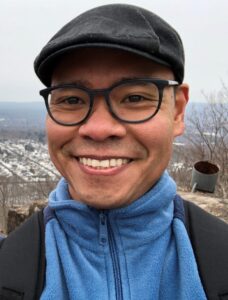 St. John of the Cross, the great Spanish mystic and poet, was often known for being fixated on the present moment, especially through prayer. Pope Francis mentions in Laudato Si’ that God is present in all the goodness present in the realities and experiences of life. He uses the example of St. John, who as a mystic, experienced the deep connection between God and all beings (no. 234).
St. John of the Cross, the great Spanish mystic and poet, was often known for being fixated on the present moment, especially through prayer. Pope Francis mentions in Laudato Si’ that God is present in all the goodness present in the realities and experiences of life. He uses the example of St. John, who as a mystic, experienced the deep connection between God and all beings (no. 234).
As we reflect on St. John of the Cross and Care for Creation, am I present in the moment as St. John was? To be present in the moment, to stop and smell the roses, is to be present to God.
Go to top
Advent with Pope Francis and Laudato Si’: Preparing for the Good News
An Advent retreat guided by the words of Pope Francis and his encyclical Laudato Si’ to prepare for the coming of our Lord Jesus Christ – the light of the world and all Creation.
“The Lord, in the culmination of the mystery of the Incarnation, chose to reach our intimate depths through a fragment of matter. He comes not from above, but from within, he comes that we might find him in this world of ours.” Pope Francis (LS 236)
During Advent, we embark on a journey of preparation for our encounter with God, Jesus Christ who comes to meet us within Creation – this is the Good News! We anticipate with hope and joy the renewal of all Creation through the Incarnation as Jesus takes on the material life we share with all creatures.
In this Advent retreat we will be bringing special attention to how we share this path of preparation in communion with Creation, who also eagerly awaits for redemption (cf. Rm 8:19-23). We will be guided by the words of Pope Francis and the encyclical Laudato Si’, his special letter to us all about the call to care for our common home.
Each week you will be invited to reflect on a specific theme through a short video from The Letter – a documentary with Pope Francis about the Laudato Si’, a short reflection on that theme and a prayer. Each week you will also be invited to a call to action, a concrete way to prepare for Christmas more sustainably.
As Pope Francis reminds us, “Living our vocation to be protectors of God’s handiwork is essential to a life of virtue; it is not an optional or a secondary aspect of our Christian experience.” (LS 217)
Go to top






